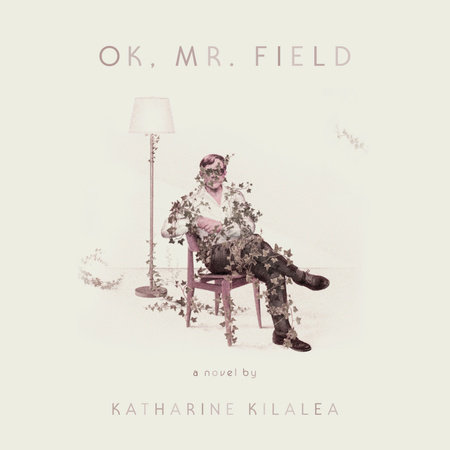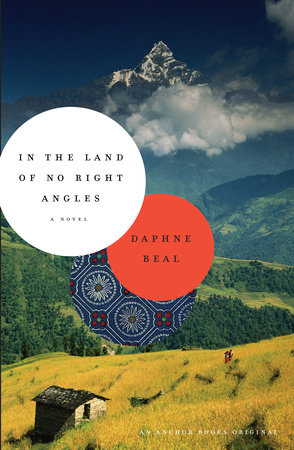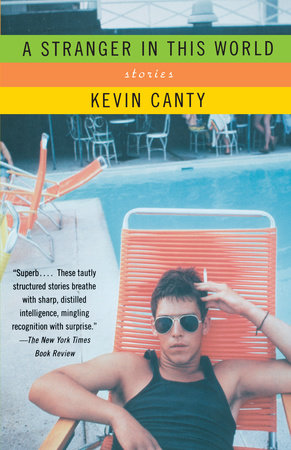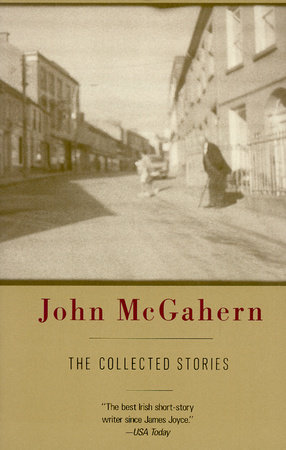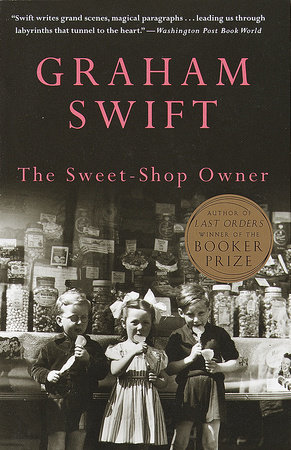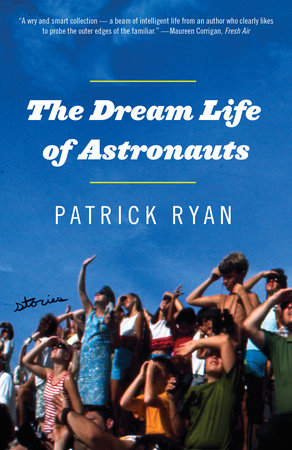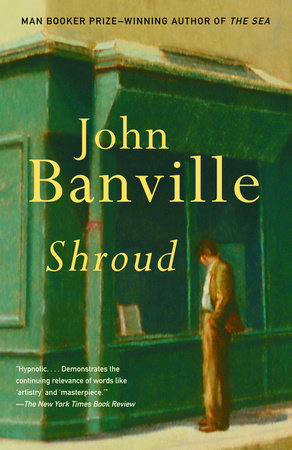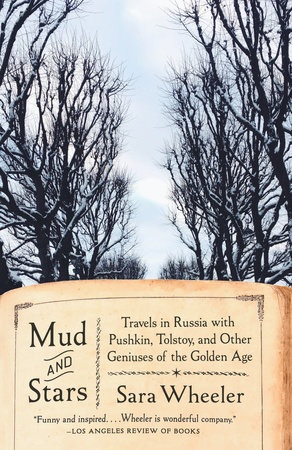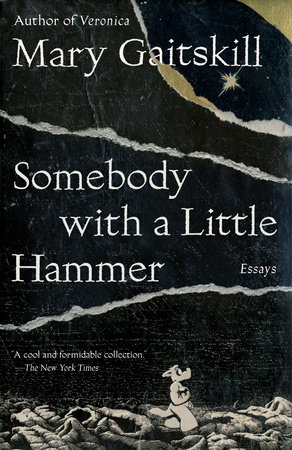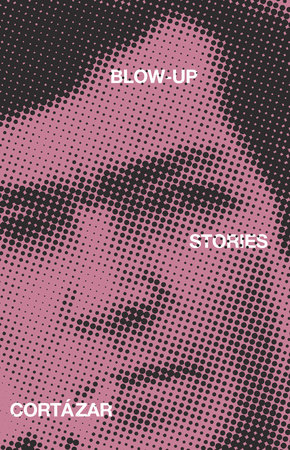Q. OK, MR. FIELD is your debut novel. Can you tell us about the inspiration behind it?
A. I wanted to write about a kind of love which is not romantic or filial or maternal, or any of the usual categories of love. The version of love which exists in married life, for instance, doesn’t particularly interest me. What interests me are the mysteriously potent feelings aroused by apparently inappropriate objects—in this case, by an elderly woman, a dog, and Chopin’s Raindrop Prelude. I didn’t want to write a story about perversion, though. I wanted to stand up for the unwieldiness of desire.
Q. How would you describe OK, MR. FIELD in your own words?
A. It’s the story of a concert pianist who moves into a replica of Le Corbusier’s Villa Savoye. Shortly after arriving, his wife disappears, leading Mr. Field to reassess his ideas about intimacy. I think of it as a sort of bildungsroman. Which is counterintuitive, since the protagonist seems to be having a kind of breakdown, but seen another way, his breakdown brings him into contact with the world more directly. It allows him to become absorbed in things. I think that Mr. Field is better off at the end of the book than he was at the beginning, since although his life seems to be getting less appealing as time passes, it is, in another way, becoming more meaningful too.
Q. Mr. Field is an idiosyncratic, unique narrator. Did you know from the outset how his state of mind would unfold throughout the novel, or did his narrative develop as you wrote the book?
A. Mr. Field’s state of mind came first—it was my reason for writing the book. But a state of mind is difficult to write about. I didn’t want the book to have a plot, in the traditional sense, because I didn’t want to imply a link between his state of mind and this or that sequence of events. I had been working on the book for some time before it occurred to me to set the novel in the Villa Savoye (which, for other reasons, I had already been researching for some time). The house became a sort of screen for Mr. Field—a way to write about his situation without making anything happen.
Q. OK, MR. FIELD is rife with deadpan, sardonic humor. How does humor serve as a natural balance to Mr. Field’s internal conflicts?
A. I have no idea! I’ve never been (successfully) funny on purpose. I’ve always been surprised when people laugh while I’m doing poetry readings. It was a source of amusement for me, though, to deposit a character like Mr. Field in a South African context. I was planning to set the book in the Alps at first (as a homage to The Magic Mountain) where he would have fitted in. But most South Africans would abhor him. They’d find endlessly introspective miserable philosophizing pretentious, indulgent, and overwrought. Who do you think you are, they’d say, Nietzsche?
Q. Architecture plays a major role throughout the novel, particularly with regard to the House for the Study of Water’s effect on Mr. Field. Can you talk about how the spaces we occupy lend themselves to explorations between characters and the outside world?
A. An easy way to think about a building’s effect on its inhabitants’ state of mind is to think of an asylum. Asylums have an aesthetic of cleanliness and simplicity, as if a space which is clean and simple promotes a clearer and simpler way of being in the world while one which is complicated and dirty might drive one mad. I wanted to use the Villa Savoye not just as a screen, but as a sort of plot device, something to help me make things happen. I divided the building into elements—the front door, ramp, windows, etc.—and used them to generate how the so-called action unfolded. For instance, in the chapter located near the front door (which is hidden round the back of the house, as if to deter unwanted guests), a visitor appears whose arrival would be fraught with confusion, causing Mr. Field to wonder who is welcome or unwelcome. A scene in the entrance hall (whose confused geometries remind me of the overlapping impressions of time in a cubist painting) disorients Mr. Field, not geographically, but by presenting him with conflicting memories.
Q. You’ve done substantial research in the fields of psychoanalysis, poetry, and architecture. Could you tell us about how these three fields intersect in OK, MR. FIELD?
A. Wordsworth suggested that the reason poetry works is because difficult feelings are more bearable in “metrical composition, especially in rhyme, than in prose.” The idea that the sound of a poem is a sort of “security device” which allows people to access troubling feelings has something in common with the psychoanalytic idea that providing the analytic “frame”—the absolutely consistent arrangement of a consulting room, appointment times, etc.—will allow an individual to enter into their more disturbed mental territories. This idea of a secure environment or a reliable container is, of course, a fundamentally architectural construct, and a very different kind of container from the leaking, moldy, broken-windowed one that Mr. Field finds himself in.
Q. Your main work so far has been as a poet, and your debut poetry collection was shortlisted for the Costa Poetry Award and longlisted for the Dylan Thomas Prize. Could you talk about the difference for you between writing poetry and fiction?
A. I have always wanted to write a novel, but have never been able to tell a story properly. I couldn’t write a plot which felt authentic because I couldn’t make things happen. So I wrote poems, where not very much happens (usually). The last poem I wrote—“Hennecker’s Ditch”—reflected a time in my life when I felt totally incapable of thinking or saying anything that made sense. I wrote it by jotting down phrases I came across—street signs, snatches of other people’s conversation—and then shifting them around in MS Word until something just “felt” right. I think the impulse to write a novel had less to do with the desire to tell a particular story than the desire to write something sensical: because I wanted to be able to make sense.
Q. OK, MR. FIELD explores a variety of themes, from the pleasures and downfalls of intimacy to the parallels between how people interact with literature and architecture. What do you hope readers will take away from the novel?
A. When I read The Magic Mountain, I began to understand myself differently. It spoke to feelings that were so vague and subterranean and illicit that it’s unlikely I’d have even encountered them without it. To reference the great Thomas Mann in relation to one’s hopes as a fledgling writer is a risky business but there it is. I’m not sure what OK, Mr. Field is about exactly, or anyway I’m not comfortable putting that into words, but I think of its ambitions as existing somewhere in the wake of whatever Thomas Mann opened up in that book.
Q. What are you working on next?
A. I’ve another novel in view but, at the moment, with two very little children in the house, time is quite fractured and I’m using whatever mental energy is left to work on a set of songs I’m writing with my husband.
